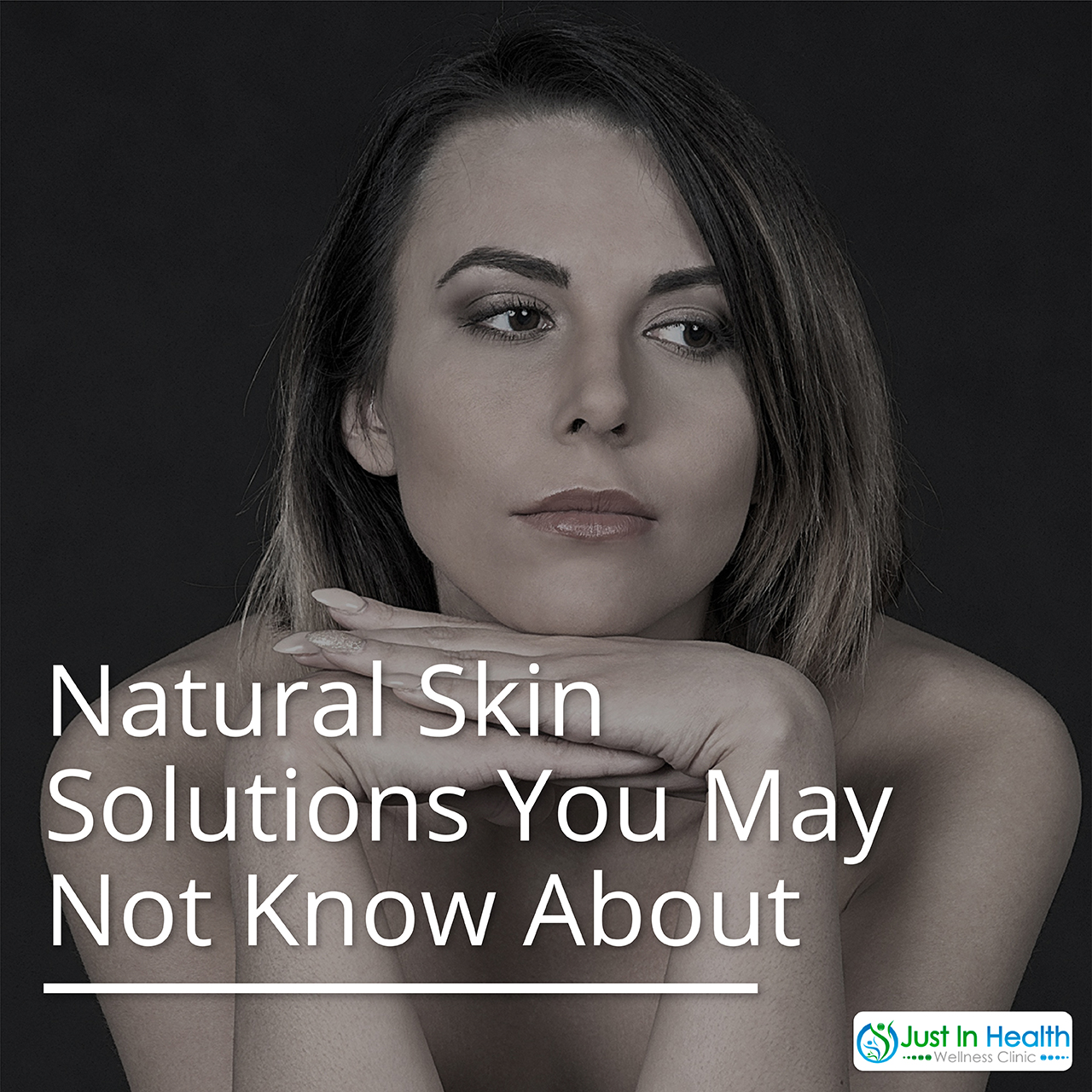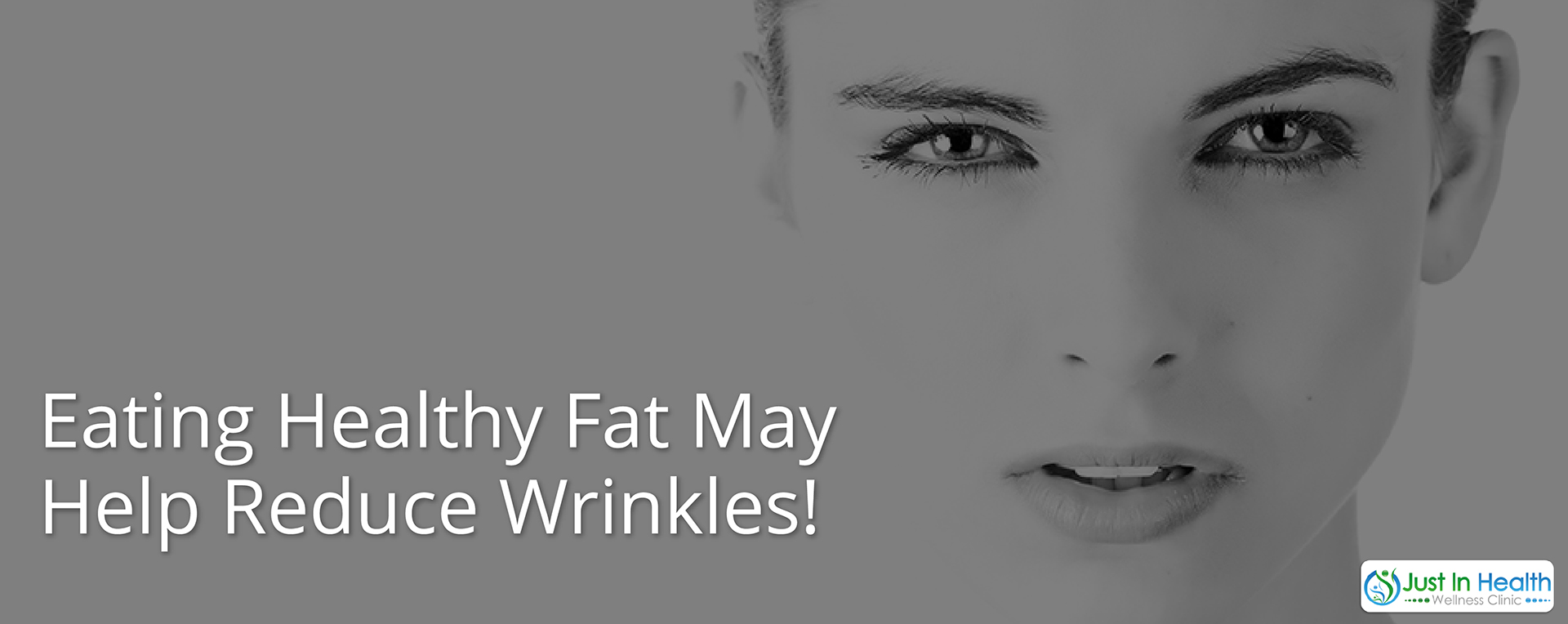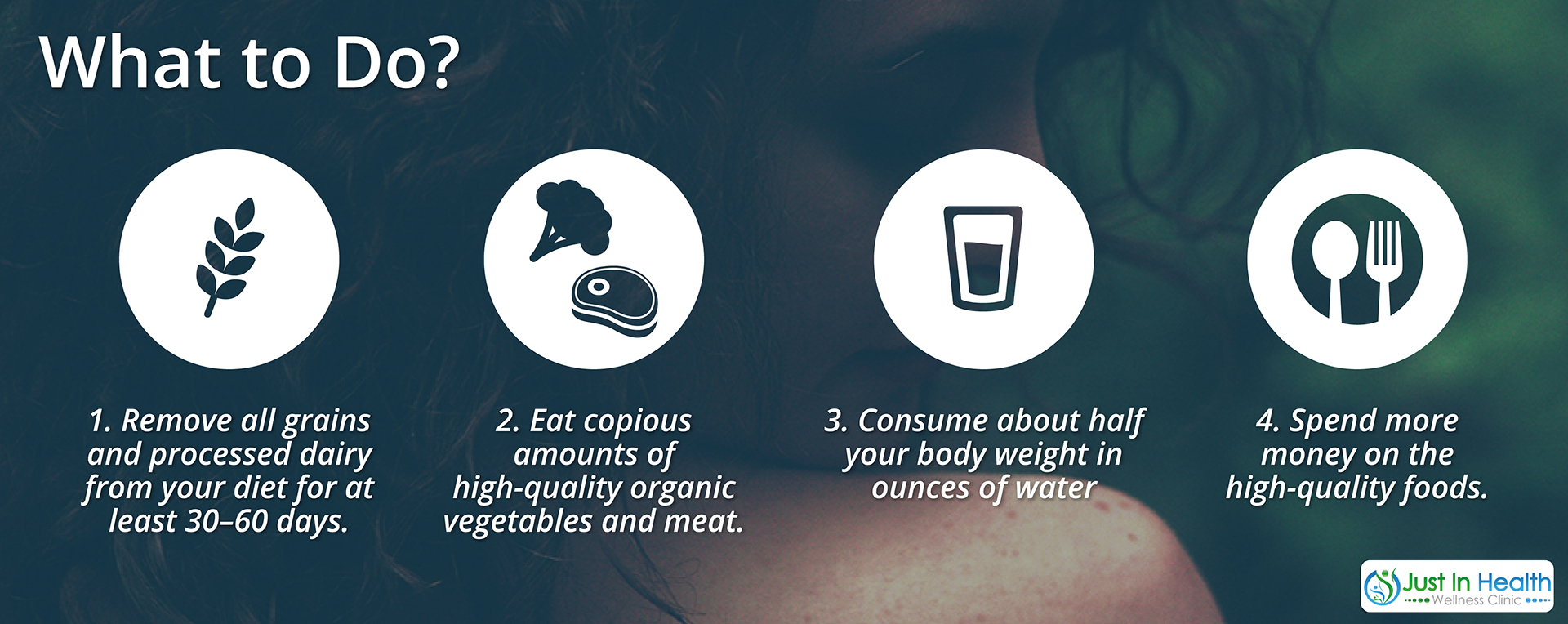

By Dr. Justin Marchegiani
One of the most important signs of good health is clear skin and a nice complexion. To have healthy skin, in general, you need to have good digestion, avoid inflammatory foods, and have good detox capacity. One of the first things someone notices about you is your skin. It's really important for first impressions. Having skin blemishes can be a strong source of self-confidence or insecurity issues, while at the same time, it can totally be prevented.
With the rise of plastic surgery and dermatological procedures, more people are trying to tap into the fountain of youth, sparing no expense for these short-lived interventions.
Before you drop a couple thousand dollars on the new cool lotion, potion, drug, or surgery, see if the info in this article helps.
Today’s article focuses on skin health and some of the natural solutions that are available. Remember lifestyle changes aren't instantaneous, so the following suggestions need to be adhered to for at least 30–60 days to increase the chances of getting the results you are looking for. This a 2-for-1 deal; by improving your skin through diet and lifestyle, you are, at the same time, improving your overall health!

Fat (especially saturated fat) provides hydration. It's a great deal of the raw material that keeps skin hydrated as well as maintains the strength of the collagen and elastic fibers.
“Fats provide building blocks for many components of epidermal and dermal tissues, and they are sources of energy in cell proliferation, maturation and homeostasis. Fats are sensitive to the oxidation process. However, maintenance of collagen and elastic fibers may require adequate amount of fat. Higher saturated fat intake was also significantly associated with a decreased facial wrinkling, suggesting a favorable effect of fat.”
Green and yellow vegetables also help decrease wrinkle development. These vegetables contain phytochemicals, antioxidants, and nutrients that help make your skin less susceptible to free radicals (which help to accelerate aging).
According to the American Journal of Clinical Nutrition (2010) by Krause, et al., a meta-analysis (looking at a conglomerate of studies) shows eating saturated fat is not correlated with heart disease or stroke.
Again, I do caution against eating higher amounts of carbohydrates, especially refined sugar, with saturated fat as this tends to be a deadly combination.
Many people may be under the false impression that they are doing themselves a favor by avoiding fat, especially saturated fat, and that consuming fat would also hurt their chances of optimal skin health.
The myth that has been perpetuated in dermatologists' offices for years is the food you eat doesn’t cause breakouts. Dealing with patients, I have seen a strong link with diet and skin health and now the current research is starting to catch up with clinical results.
The Journal of Clinical Dermatology (2010) found the more refined carbs (i.e., breads, pastas, bagels, sodas, and even foods that contain hormones, like processed meats and dairy products) will increase your chances of breakouts. The insulin produced from the excess refined carbs in your diet will also increase the activity of your sebaceous glands, making your skin appear oilier and increasing the chance of clogged pores.
“Foods with significant sugar content and other carbohydrates yielding high glycemic loads affect serum insulin and insulin-like growth factor-1 levels, both of which promote increased production of available androgen's and the subsequent development of acne.”
I understand that many of the suggestions I am making may be a little controversial. I am bringing everyone cutting-edge information backed by research to help improve their health and that includes their skin, too. It is important to note that cutting-edge information wouldn’t be cutting edge if it was already widely accepted.
Skin inflammation is greatly controlled by microbial residents in the gastrointestinal tract according to the research of Stokes and Pillsbury. They were able to make the connection between the gut, skin, and mental-emotional health symptoms like depression (Gut-skin-brain axis) (4).
They were able to cite research showing that as many as 40% of people with skin issues had low stomach-acid levels. The low stomach acid sets the stage for an overgrowth of bad bacteria in the small intestine due to the indigestion of food (protein, carbs, and fats) (4).
Pillsbury and Stokes's research from over 70 years ago would still be on the cutting edge or fringe (depending on your perspective) of the dermatology world today. They treated acne patients with cod liver oil and probiotics with success. This is a far cry from today's dermatologists still using various antibiotic creams, like tetracycline, to treat these same skin issues. The underlying systemic causes of these skin issues are still being ignored today!
Click here to get your gut health assessed!
It's been confirmed that low stomach acid puts patients at risk for a small intestinal bacterial overgrowth. It's been shown that nearly half of all patients on proton pump inhibitors (acid blocking medication) have SIBO (Small intestinal bacterial overgrowth).
The symptoms of small intestinal bacterial overgrowth are diarrhea, abdominal pain, bloating, acid reflex, gas, fibromyalgia, and chronic fatigue syndrome. SIBO can compromise your body's ability to absorb proteins, fats, carbohydrates, and other important micronutrients. These bad bacteria compete for nutrients and poison the body with their toxic metabolic byproducts. The toxic bacterial remnants are then pushed through the skin as a means of detoxification. The skin is the largest detoxification organ in the body in case you didn't know (4).
Research has shown that small intestinal bacterial overgrowth is 10 times more likely in a patient suffering from acne. It seems that the deficient omega-3 diets are also more common in people that have small intestinal bacterial overgrowth (4).
Adding high-quality cod liver oil may provide a therapeutic benefit in helping improve someone's skin as well as emotional well-being (4).
Administering high-quality probiotics can help crowd out the negative bad bacteria in the gut. In my experience some people need an herbal gut-killing program first. This consists of high doses of herbs that have antimicrobial, antiparasitic, and antifungal qualities to help neutralize the bad critters in the gastrointestinal tract. Its common for these people to have symptoms when consuming probiotics. Some even have chronic parasite or gut infections outside of typical bacterial overgrowth.
Getting a good comprehensive stool analysis can help assess what the underlying infections are present. It's easier to treat patients' gut infections when you know what type of infection you're dealing with.
I use a simple analogy with patients regarding the use of probiotics: If you were to get your car washed and waxed, you would typically complete the task in the following order.
1. Get your car washed.
Then…
2. Get your car waxed.
If you put wax on a dirty car, you end up trapping all that dirt against the car's surface. A clean car is more receptive to wax when the car's surface is clean. This is the same thing with the gut and probiotics. A clean gut is going to be more receptive to good bacteria than a dirty gut would.
I see many patients with bacterial overgrowth develop all kinds of symptoms when taking in probiotics. Soil-based bacteria organisms can help with this, but I find cleaning out the gut first tends to be more efficient.

1. Remove all grains and processed dairy from your diet for at least 30–60 days. The gluten in grains tends to be a common food allergen that aggravates many people's skin. Many people are autoimmune and actually create antibodies call transglutaminase 2 that can actually attack the skin.
2. Eat copious amounts of high-quality organic vegetables and meat.
3. Consume about half your body weight in ounces of water (e.g., 200-pound person=100 ounces).
4. Spend more money on the high-quality foods mentioned above and less on surgical and pharmaceutical interventions that mask the symptoms.
1. 2 grams of high-quality fish or cod liver oil.
2. Collagen supplements can help improve your skin's elasticity and decrease cellulite.
3. Coconut oil or MCT oil
4. GLA fats, like black current seed oil or evening primrose oil, can be very helpful, especially in menstruating females.
5. High-quality beneficial probiotics. I highly recommend getting a gut test first to assess what type of bacteria and/or parasitic infections might be residing. Click here to get your gut health assessed!
6. Find your dosage for hydrochloric acid. It's best to work with a functional medicine doctor on this one.
References:
1. British Journal of Nutrition (2010), 103, 1493–1498
2. Clinical Dermatology (2010) Nov-Dec; 28(6):598-604
3. The American Journal of Clinical Nutrition (2010) Jan, Krause et al
4. Acne vulgaris, probiotics and the gut-brain-skin axis – back to the future? Bowe et al